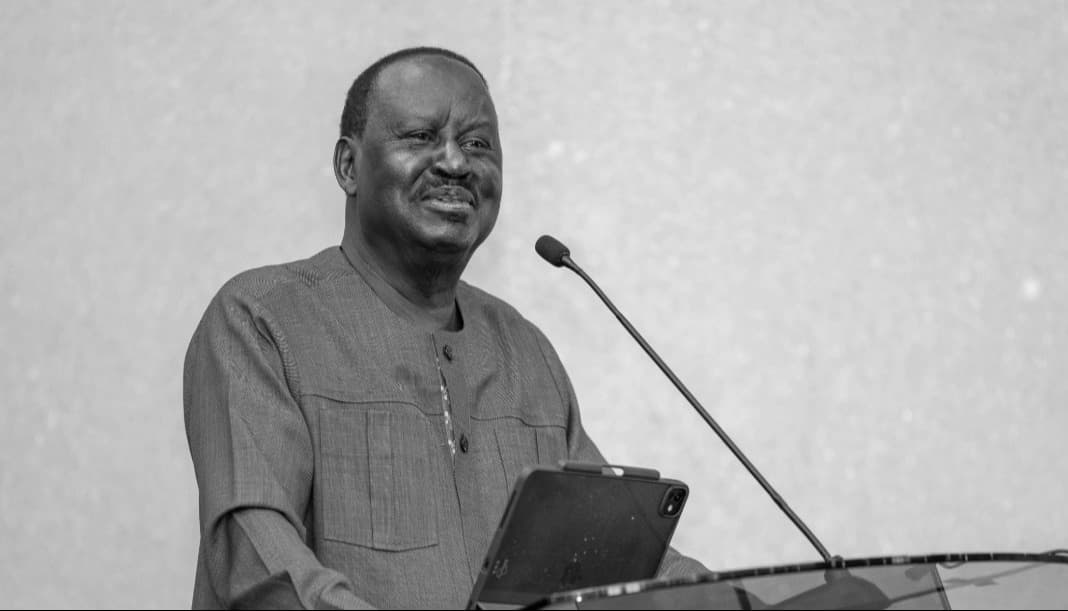We're loading the full news article for you. This includes the article content, images, author information, and related articles.
Former Law Society of Kenya President Nelson Havi reflects on the late Raila Odinga's complex political legacy, noting that while some perceived disappointment in his later career, his strategic negotiations were crucial for national stability.

Nairobi, Kenya – The late former Prime Minister Raila Odinga, a towering figure in Kenyan politics, appeared to disappoint many who once viewed him as a revolutionary, particularly towards the end of his political career, according to former Law Society of Kenya (LSK) President Nelson Havi. Speaking on Tuesday, October 21, 2025, Havi observed that Odinga's final political decisions before his passing seemed to alienate those who had long seen him as an unwavering champion of change and opposition politics.
“At the tail end of his political career, Raila seemed to disappoint many of those who saw him as a revolutionary,” Havi stated during a local television interview. However, Havi also offered a nuanced perspective, suggesting that such disappointment might stem from a misinterpretation of Odinga's long-standing political strategy.
Havi characterised Odinga's approach as one of careful calculation, blending confrontation with negotiation. This strategy, he argued, consistently placed Odinga at the centre of Kenya's political settlements, particularly following disputed elections. According to Havi, Odinga's ability to negotiate from a position of strength was rooted in his significant influence and mobilisation power, which enabled him to challenge the political system when necessary.
He further elaborated that in politics, meaningful negotiation is only possible when one possesses the capacity to resist or engage in political battles, even if not through violent means. Havi emphasised that Odinga's legacy should not be solely measured by confrontation or chaos, but rather by his profound belief in democratic transformation achieved through the ballot, not the bullet.
Raila Odinga's political career spanned over three decades, marked by a relentless pursuit of democratic reforms and social justice. He was instrumental in the reintroduction of multi-party politics in Kenya in the early 1990s and played a significant role in the crafting of the 2010 Constitution, which introduced devolution and curtailed presidential powers.
Despite running for president five times and never clinching the top seat, Odinga's influence on Kenya's political landscape was undeniable. His presidential bids in 1997, 2007, 2013, 2017, and 2022 were often marred by allegations of fraud and electoral malfeasance, leading to periods of significant political unrest.
Notably, the disputed 2007 elections led to widespread violence, after which Odinga entered a power-sharing agreement as Prime Minister, a move that demonstrated his commitment to peace and national unity. His political maneuvers, including alliances with former adversaries, often drew criticism but were frequently aimed at stabilising the nation.
Odinga was a staunch advocate for constitutional reforms, pushing for a system that devolved power and ensured a more equitable distribution of resources. His petitions challenging presidential election results, though often dismissed, led to significant legal and institutional reforms in Kenya's electoral processes, enhancing transparency and judicial independence.
Nelson Havi's reflections are part of a broader national conversation about Odinga's complex legacy. Many leaders and citizens remember Odinga as a champion of democracy and a transformational figure who dedicated his life to public service. His ability to connect with ordinary Kenyans and his charismatic leadership earned him a devoted following.
Odinga's passing leaves a significant void in Kenyan politics, prompting discussions about the future leadership within his Orange Democratic Movement (ODM) party and the broader political landscape. His absence may usher in a new era of political competition, particularly in regions where his word was once considered law.
While Havi acknowledged the perceived disappointment, he also highlighted the strategic nature of Odinga's later political engagements, including his pacts with former rivals. These alliances, while criticised by some supporters, were often seen as crucial for national cohesion and stability, particularly after contentious elections.
Raila Odinga passed away on Wednesday, October 15, 2025, in India at the age of 80. His state funeral was held on Saturday, October 18, 2025, followed by a private burial at his home in Kang'o ka Jaramogi, Bondo, on Sunday, October 19, 2025.
The political landscape in Kenya will likely see shifts as various factions within the ODM party and beyond vie for influence in the post-Odinga era. The focus will be on how new leaders emerge and how the country navigates future political transitions without Odinga's unifying or challenging presence. The impact of his death on the 2027 general election matrix is also a key area to watch.
Keep the conversation in one place—threads here stay linked to the story and in the forums.
Sign in to start a discussion
Start a conversation about this story and keep it linked here.
Other hot threads
E-sports and Gaming Community in Kenya
Active 9 months ago
The Role of Technology in Modern Agriculture (AgriTech)
Active 9 months ago
Popular Recreational Activities Across Counties
Active 9 months ago
Investing in Youth Sports Development Programs
Active 9 months ago
Key figures and persons of interest featured in this article